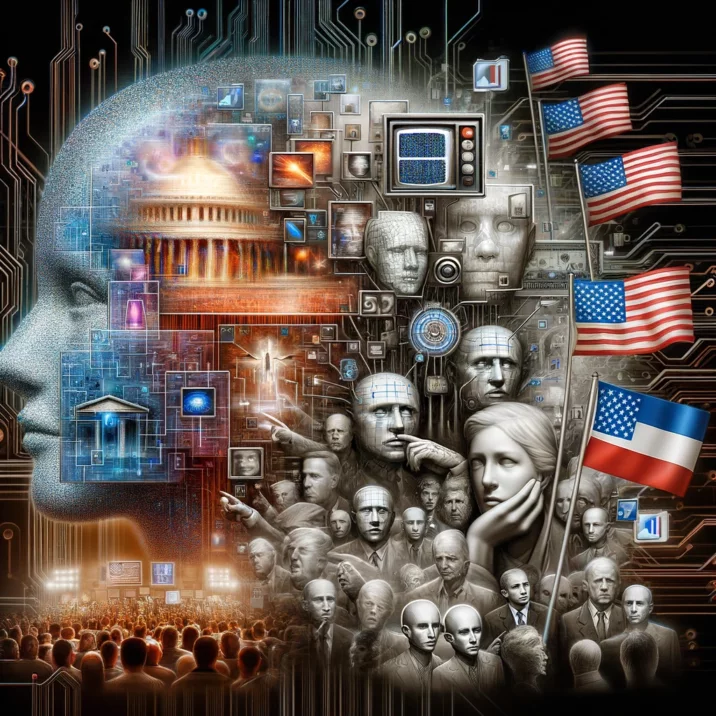
As we march through the pivotal election year of 2024, a formidable shadow looms over the democratic process. This shadow is not cast by a person or an institution, but by a technology: Artificial Intelligence (AI). Once celebrated as a beacon of innovation, AI now stands accused of distorting the very fabric of truth, particularly in the political arena.
The alarm bells are ringing loud and clear. Politicians worldwide, including former U.S. President Donald Trump, are increasingly attributing damaging evidence such as compromising videos and critical audio recordings to AI’s crafty manipulations. These claims, often unsubstantiated, are not just random outbursts but symptomatic of a deeper, more systemic issue.
Consider this: The New Hampshire Justice Department is investigating AI-generated robocalls impersonating President Biden. These calls urged voters to skip the primary elections, marking a chilling new chapter in AI-fueled voter suppression tactics. Last month, Trump himself dismissed a Fox News ad highlighting his public gaffes as AI fabrications. This ad, produced by the Lincoln Project, was quickly refuted, yet the seed of doubt had been sown.
AI’s role in politics is increasingly characterized by what experts like Hany Farid, a digital misinformation specialist, call the “liar’s dividend.” This phenomenon provides a convenient escape hatch for politicians caught in compromising situations, allowing them to claim digital forgery. In an age where AI-generated deepfakes are becoming indistinguishable from reality, discerning truth from fabrication is becoming an uphill battle.
This disturbing trend is not confined to the United States. In Taiwan, a video hinting at a politician’s affair was hastily denounced as AI-generated, without clear evidence. In southern India, a voice recording implicating a politician in financial misdeeds was similarly dismissed as “machine generated.”
The Internet Patrol is completely free, and reader-supported. Your tips via CashApp, Venmo, or Paypal are appreciated! Receipts will come from ISIPP.
The implications of this AI-induced confusion extend far beyond the realm of politics. Recently, an audio clip allegedly capturing a Maryland school principal in a racist rant was circulated, with claims that it was AI-generated. Without concrete evidence, such instances contribute to an atmosphere of mistrust and skepticism.
In the face of AI’s growing influence, the response from tech companies has been lukewarm at best. Despite the obvious need for robust mechanisms to verify the authenticity of media, the development and implementation of such systems lag far behind. This gap leaves the door wide open for the misuse of AI tools in shaping public perception and manipulating democratic processes.
The situation is further exacerbated by the public’s growing awareness and wariness of AI deepfakes. As noted by Aviv Ovadya, an AI and democracy expert, this awareness is leading to a “contagion effect” where more individuals might use AI as a convenient scapegoat to deflect criticism or accountability.
In this murky landscape, the call to action for tech companies is clear. They must step up and deploy effective strategies to combat the misuse of AI. This includes watermarking digital media, developing standards for verifying the origin of content, and, crucially, adjusting algorithms to prevent the amplification of potentially false and sensational content.
As we navigate these troubled waters, the onus falls not just on tech companies but on each of us to remain vigilant. In the 2024 elections and beyond, finding a way to distinguish truth from fiction will become harder and harder.
The Internet Patrol is completely free, and reader-supported. Your tips via CashApp, Venmo, or Paypal are appreciated! Receipts will come from ISIPP.









